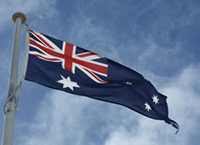Sydney used to be ranked as Australia’s most expensive city for expats. While that may still hold true, the good news is that the 2014 Mercer Cost of Living Survey indicates that it has dropped a whopping seventeen places from number nine to twenty-six. This fall in cost of living has occurred in other Australian cities too. For instance, Melbourne dropped a massive seventeen places to 33, Perth is down nineteen spots, Brisbane and Canberra slipped out of the top fifty and Adelaide was down twenty-five places from its rank of 59 in 2013. The prime reasons for the fall in rankings are the changes taking place in the value of the Australian dollar against the US dollar. This also translates into better job opportunities becoming available in the country, as corporates will find it lucrative to have their offices in any of these cities.Australia has always been regarded as an attractive expat destination and these new developments are evidence that it will continue to offer its expat a high quality of life and a low cost of living.
Making sure that their income covers their expenses is an important step for individuals who are relocating to a new country. Here are some cost of living facts about Australia that can come in handy when evaluating an employment package.
Cost of housing
Rental rates are highest in Sydney, but other cities like Canberra, Adelaide and Melbourne also have rather steep prices. Demand for rental properties has been high and the general shortage of such properties and increases in landlord rate have added to the situation. Prices are believed to stabilize and maybe also drop in the coming years. Expats can expect to keep aside nearly 30 percent of monthly income for accommodation costs. Remember that along with housing prices, there are also other fees to be considered such as electricity prices, which are expected to go up in in the next two years.
Cost of healthcare
Holders of a permanent visa, nationals of Australia and New Zealand and visitors from countries that share a reciprocal health agreement with Australia can qualify for Medicare, the state-funded healthcare system. With Medicare, the treatment at all public hospitals is free. There is also partial coverage of consultation fees, tests and minor surgical procedures. Medicare also reduces the costs of medication. Many also opt for private insurance since Medicare does not cover dental care and certain other treatments. Many expats in Australia that are on temporary visas don’t qualify for Medicare, but are required to show healthcare proof in the visa application. An ideal situation is when the employer provides health insurance as part of the employment package. Other options include an existing international health insurance plan that meets the requirements for Australia and obtaining a new insurance plan for your stay in the country. Private health insurance costs can be high, but they are necessary costs that those with temporary visa are required to pay.
Cost of education
Australia’s public school system provides high quality education and expats can take advantage of this, especially since the fees are very affordable. The costs involved mainly go toward things like school uniforms, stationary and a few contributions. There are also reputed private schools in the country and the tuition fees at these schools vary from city to city. An established modern private school will usually charge somewhere between $20,000 and $32,000 for a Year 12 day student. Attendance at an Australian private school may also include additional non-recurring costs such as application fees, enrolment fees and non-interest bearing loans. Recurring costs may include building levies, costs of IT equipment, musical equipment hire, school bus services and International Baccalaureate levies.
Cost of transportation
Public transport in a city like Sydney is dependable and also cheap, especially since traffic congestion is always high and parking is expensive. Brisbane has a good network of trains and buses and therefore it is convenient to move around the city. But it does have the unfortunate distinction of being the most expensive city in Australia in terms of public transport costs. A way of making this slightly affordable is to opt for a Go Card if you are a regular commuter.

